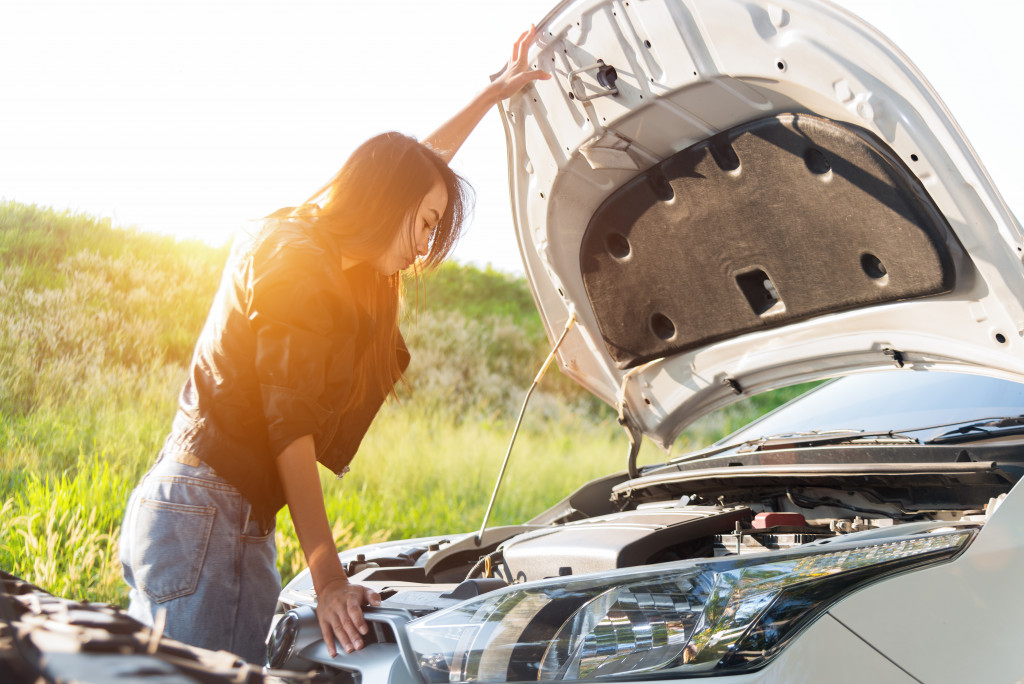If you have a breakdown and find yourself stuck on the side of the road, that’s one of those nightmarish situations that no driver wants to find himself in. One of the most effective methods to prevent this unpleasant scenario is to teach yourself the most common causes of car breakdowns and how to avoid them in the first place. Here are some of the most frequent reasons vehicles break down and some pointers on avoiding having these issues impact you.
Too Little or Too Much Engine Oil
Using the incorrect amount of engine oil can cause harm to your engine, and using too much oil is just as dangerous as using too little oil. If you run a diesel with a diesel particulate filter (DPF) and the DPF does not regenerate, the oil in the engine may get diluted as a result. This may result in severe engine damage, necessitating the necessity for changing the oil at your local mechanic. Examine your motor oil by using a dipstick regularly.
The amount should be somewhere in the middle of the two lines. Typically, the quantity of oil between both the low and high lines of the dipstick is 1 liter in volume. The proper oil specification will be listed in your vehicle’s owner’s manual, so don’t forget to check that out.
Tire Damage
In addition to tires, many other components in a vehicle may wear down and cause problems, which can happen without the driver knowing. Of the many kinds of damage, the most frequent are punctures, cuts, collisions, cracks, bulges, and wear patterns that are not regular. It’s time to invest in a good mechanic who has a shop with adequate equipment such as a wheel balancer. We’ll go through the symptoms in this part, as well as some ways to avoid them. If not advised by the vehicle manufacturer, change the tires’ location on the automobile periodically to encourage equal wear.
Also, this is a good time to rotate the tires, such as when changing from summer tires to winter tires. Regularly turning the wheels between powered and non-powered axles provides drivers with a consistent pattern of tire wear.
Follow the vehicle manufacturer’s guidelines while using the vehicle. The best strategy is to drive the vehicle parallel to the barrier and perpendicularly as possible. Afterward, look at your tires to see if they have been damaged from use on the outside, such as cuts, cracks, or bulges. To prevent aggressively driving on dirt roads, avoid driving in all conditions.

Busted Electrical System
Your vehicle’s electrical system comprises several circuits that regulate everything, from the headlights to the audio system. Burned-out bulbs, lousy wiring, blown fuses, and general wear and tear are all causes of vehicle problems. Although it is feasible to locate the source of the problem with a voltmeter and a little investigative work, if the problem is not apparent, such as a burst bulb, you might also want to seek professional assistance. A qualified technician can thoroughly examine the power system and provide recommendations on what to do next.
Wrong Fuel
There is no need to be embarrassed if you have ever made the fatal mistake of pumping the incorrect gasoline in your vehicle. Every year, tens of thousands of distracted Brits suffer the consequences of a fueling mishap. You must respond quickly if you’ve inadvertently placed gasoline in a diesel vehicle (or diesel in a gasoline car). You will only need to have the gas drained out and refilled if you don’t start the engine.
The situation becomes a bit more complex if you’ve created the engine or gone any distance after misfueling your vehicle. Removing the gasoline and flushing of the system may be sufficient in some instances, but mechanical stress may have occurred in others, necessitating additional investigation.
For many drivers, breaking down is one of the most infuriating issues. Here are a few suggestions to help you prevent breakdowns and avoid hitting your vehicle with a stick while you wait for assistance to come. Take care of your vehicle by making sure that it always has a service performed on it. Regular servicing keeps your car roadworthy and means that any problems can be dealt with before they worsen.
Avoid sudden abrupt stops and starts, shifting into lower gears in cold conditions or revving the engine. Apply the brakes gradually so as not to put unnecessary pressure on the brake pads, which will result in brake wear. Finally, remove the breakdown cover so that assistance is available if you are stuck on the side of the road.

